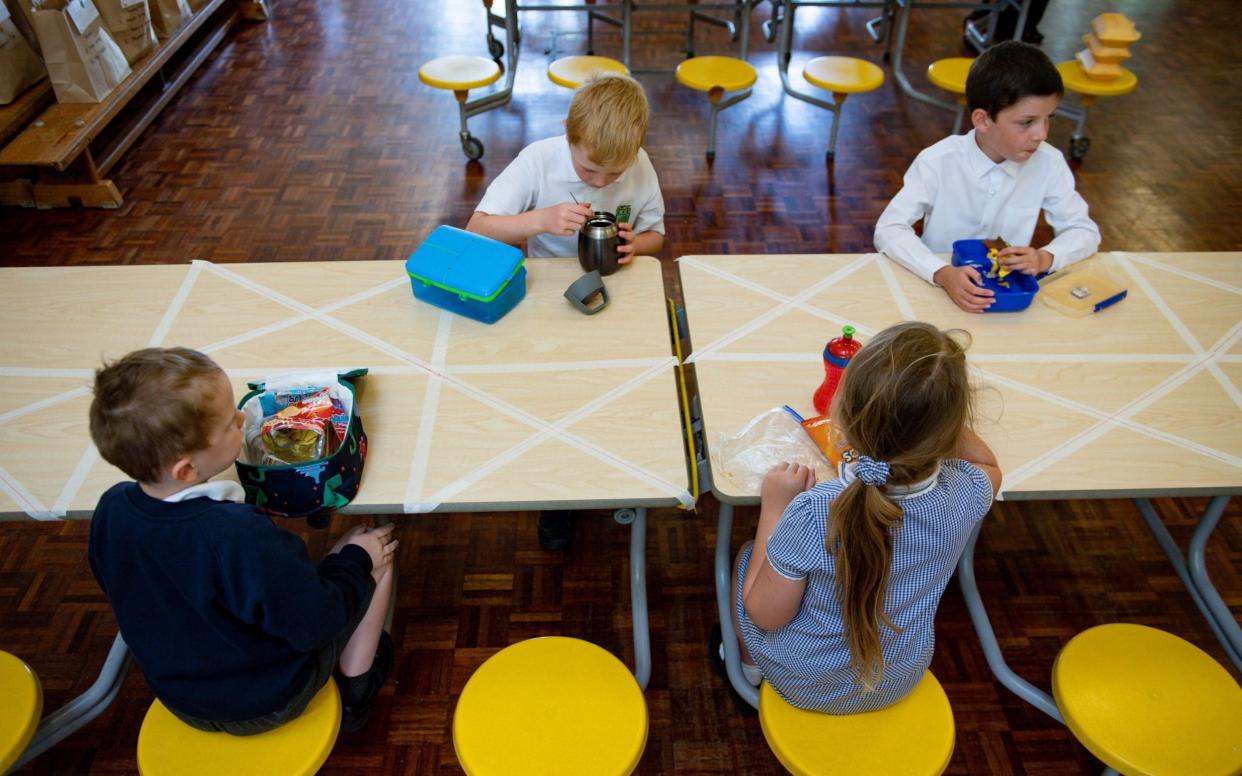School day could get longer to let the 'Covid generation' catch up after lockdown


School days could become half an hour longer in order to stop the so-called “Covid generation” falling behind after lockdown, a report has said.
Unless drastic measures are introduced, it will take “several years” for children to catch up when schools reopen, according to a new study published by London School of Economics and Political Sciences (LSE).
Researchers warn that without a series of interventions, youngsters will slip into a “dark age” of declining social mobility due to inequalities that have been exacerbated during lockdown.
School closures for many pupils are likely to last for 10-14 weeks, equivalent to a third of the school year, the report says.
Based on calculations from previous studies, it is estimated that “more than two additional hours of teaching per week might be needed over a year” to compensate for each school week lost to Covid-19.
The report, published by the LSE’s Centre for Economic Performance, said: “This suggests that several years of extra tutoring will be required to bring children back up to speed.
“The longer we leave the school return for our most vulnerable children, the bigger will be the challenge in getting them back up to speed.”
The Government has asked schools to prepare to open on Monday for pupils in Reception, Year One and Year Six, with the “ambition” that all primary age pupils will be able to return by the end of the month.
Meanwhile, secondary schools have been asked to welcome back pupils in Year 10 and Year 12, who are mid-way through their GCSEs and A-levels, from June 15 but only quarter of each year group is allowed back on any one day.
But the announcement has been met with staunch opposition from teacher unions and dozens of local councils who said it is not safe to reopen next month.
More than 50 councils have said they are against the June 1 start date and are either allowing headteachers to make their own arrangements or advising them not to open.

Schools were ordered to close to all but the children of key workers and the most vulnerable youngsters on March 20, meaning most children will have been out of school for at least ten weeks.
Professor Lee Elliot Major, an expert in social mobility at Exeter University and co-author of the report, said: “There are serious concerns that the pandemic will plunge the Covid-19 generation into a dark age of declining social mobility because of rising economic and educational inequalities.”
He explained that the effects of the crisis and lockdown vary across age groups.
“While the coronavirus health shock has particularly affected the over-60s, the longer-term economic and social damage is likely to hit young people disproportionately, especially the under-25s,” he said.
The report defines the “Covid generation” as those under the age of 25, who it say says face declining social mobility unless “bold moves are made to create a fairer society”.
Students should be randomly allocated places for popular university courses, as long as they have the required grades, the report says.
“The most equitable way to allocate places to equally deserving candidates at oversubscribed institutions is to pick them randomly,” the authors argue.
The report also advocates a job guarantee scheme for those facing long-term unemployment and national tutoring service for disadvantaged children.
Earlier this month, the Education Secretary said that retired teachers and university graduates could be drafted in to run summer schools for children.
Gavin Williamson revealed that he is “very closely looking at” a scheme which would see volunteers provide extra tuition for youngsters who have fallen behind during lockdown.
He said there are “many thousands of volunteers” who want to help children catch up on the education they have missed while schools


